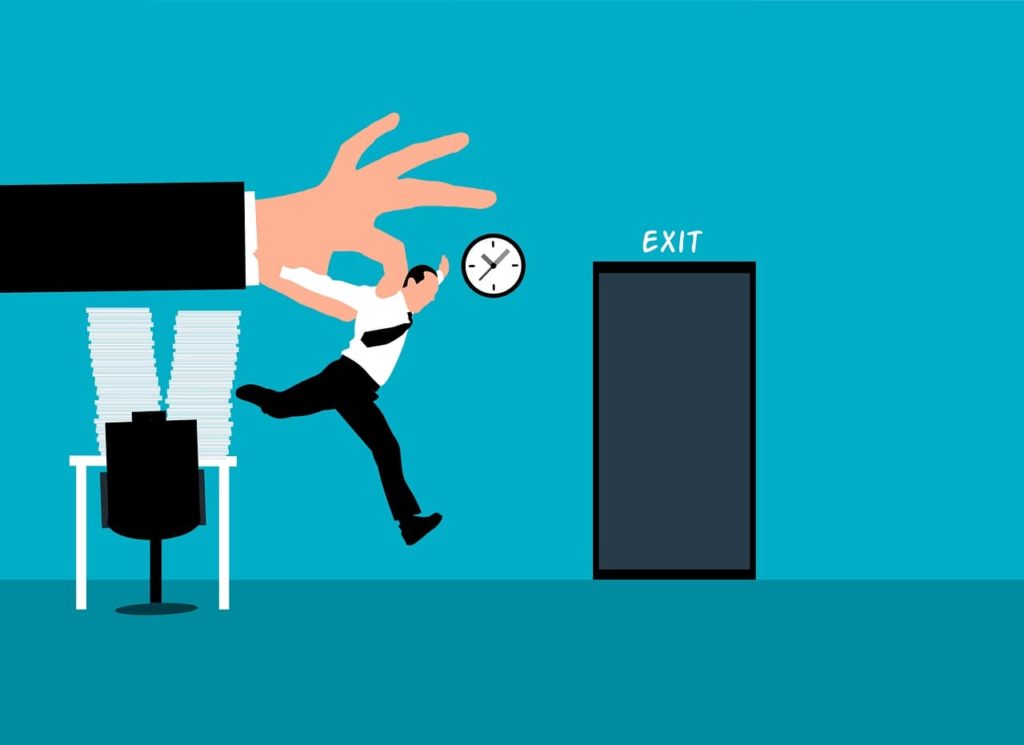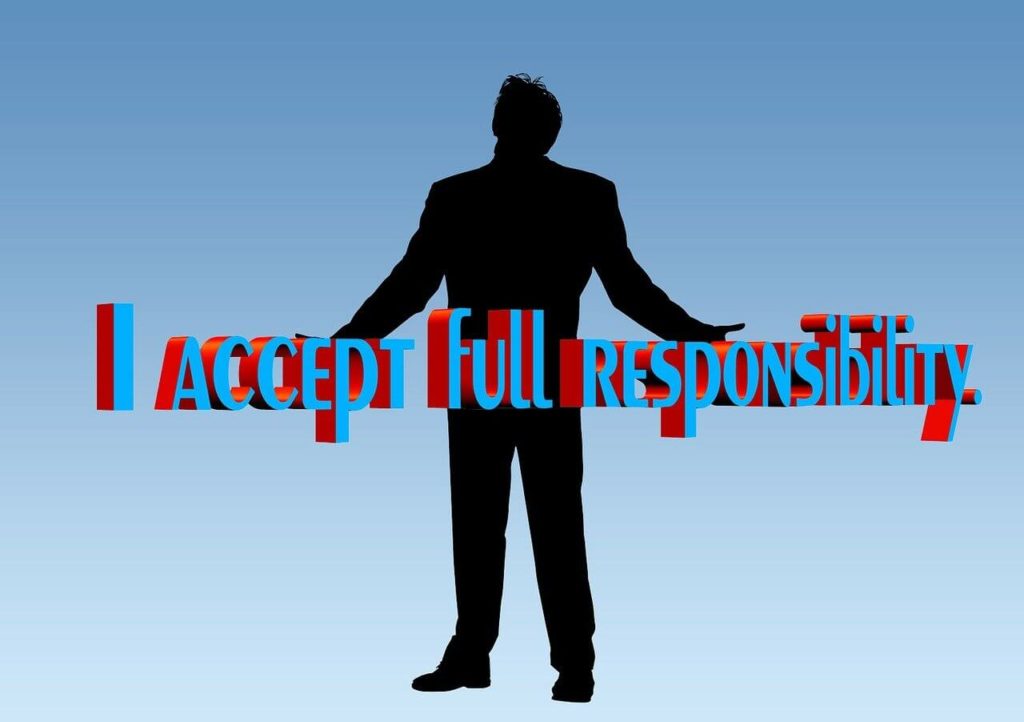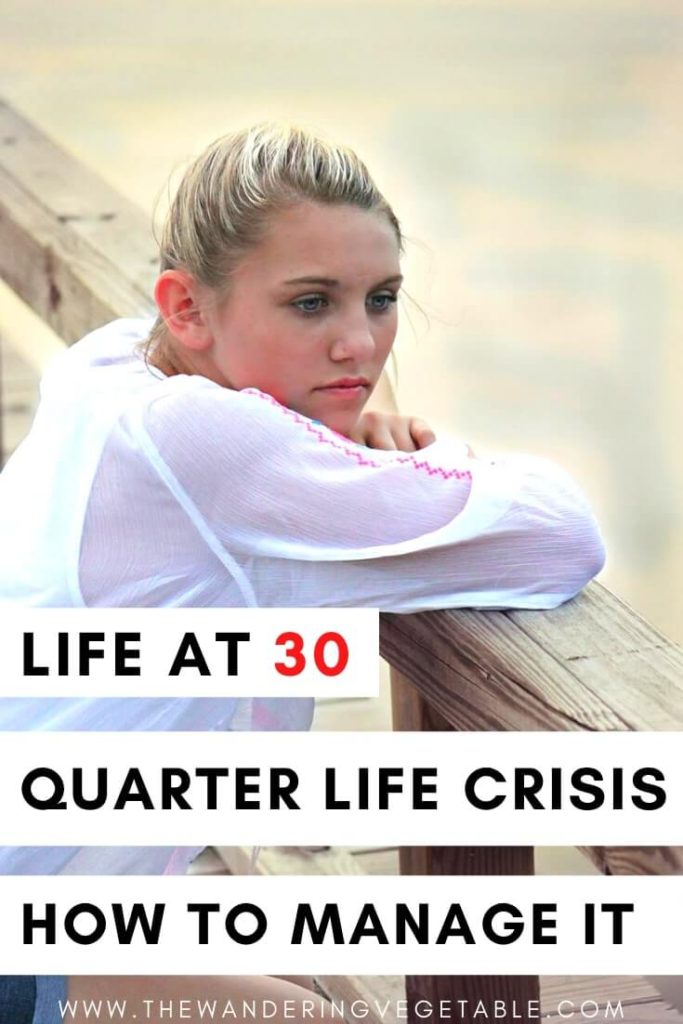An annual seven-figure salary, a self-owned house with a fleet of cars that scream luxury, a life companion who is freaking beautiful inside and out, kickass mornings that begin with Future’s track “Life is Good“, and being in the best possible physical and mental state. Life at 30 was supposed to look picture-perfect. Right?
I mean, at least this was the idea of a “quintessential 30-year old’s life” that was sold to us by the world in our mid and late twenties. Then what exactly went wrong? Why does this rosy narrative of success not match our current reality? Why do we, even at 30, feel lost and unsure of ourselves?
30 was the age we were supposed to be in cruise control and at the peak of our game. Then why does this thought of “feeling behind in life at 30” overwhelm us sometimes?
Why does it seem that if 30 was the pre-decided magic age at which we were supposed to figure out our direction in life, then our life compass suddenly decided to self-destruct and fall in the North Atlantic Ocean, just beside the Titanic?
In this blog, we’ll discuss what crisis this feeling actually represents, signs that you suffer from the crisis, issues that people face in life at 30, and how to manage the crisis effectively.
Quarter Life Crisis
Recently, I was sitting amongst my peers on a weekend outing. And we got into a discussion over Instagram posts and how it seemed from the Insta feeds that almost everybody around us was suddenly getting married, getting promoted at their workplace, or was shifting overseas.
If you’re in your late 20s or early 30s, you’ll know what I’m talking about. Scroll through your Instagram feed and you’ll see posts & reels of young individuals who are mostly – asking you to “save the date” of their marriage, pooping money like nobody’s business, collaborating with brands (you haven’t heard names of), enjoying the foolish innocence of their babies, giving a webinar on how to be a successful young entrepreneur, or holidaying in the Maldives for some weird reason.
Cut to reality, and it feels like you’re living on another planet. Isn’t it? For namesake, let’s call the planet “Uluto”– a Pluto, but for underachievers.

On this planet, you’re living in a rented apartment with rented furniture, travelling in an Uber, waiting to get that big break in your career, struggling to find a partner to date, and on most days, feeling lonely, stressed, & emotionally vulnerable.
A quick Google search on what is this sudden shitty feeling at 30 and the phrase “quarter life crisis” comes up. It reads something like, & I quote- “a period of uncertainty and questioning that typically occurs when people feel trapped, uninspired, and disillusioned during their mid-20s to early 30s.”
Today, a quarter life crisis is not just a fancy term but sadly, a global reality. You’ll find several Reddit threads and discussion forums where people in their late 20s and early 30s are voicing out a common discomforting feeling. A shared feeling of struggle and overall unhappiness.
Having somewhat gone through those uncomfortable feelings of uncertainty & insecurity myself, despite being financially blessed and emotionally supported by an incredibly loving family, I thought I should address the elephant in the room ie. the reality of life at 30.
In this post, we’ll discuss the signs of a quarter-life crisis, issues & struggles that an average 30-year-old faces today, and effective ways to manage a quarter life crisis.
Signs Of A Quarter Life Crisis

- You feel lost and are unsure of your purpose in life.
- You know that something’s missing in your life but you can’t put a finger on what it exactly is.
- There’s constant insecurity that your peers are doing better than you and that you’re far behind in the race.
- Lacking motivation on an everyday basis and not knowing what to do with your life.
- You are always second-guessing every choice of yours and abhor the decision-making process.
- You are unable to understand why you’re sad and see yourself as a failure despite all your achievements.
- There is a lack of consistency in anything you do and an overall fear of commitment.
- You don’t know how to deal with people and your relationships are fluctuating.
- You feel lonely, dissatisfied, and are a ticking time bomb emotionally.
- You’re always seeking ways to escape the harsh reality that you are failing to be the best version of yourself.
Issues People Are Facing In Life At 30

Feel like life is going nowhere at 30? A random thought like “Is my life over at 30?” giving you sleepless nights? According to The Guardian, a statistical research report says that 86% of millennials are currently affected by the quarter life crisis.
Here is a list of the issues that people are facing in life at 30.
Career Issues
The job that you were once excited about, has become monotonous and boring. It’s been a while now and you can predict every beat of your work schedule on most days. You are literally going through the motions because it pays your bills. There is no creative outlet for you to feel satisfied with your work.
You are more enthusiastic about what you’ll do on your weekly offs than at your workplace. You don’t see yourself making any qualitative progress professionally other than merely getting a salary. Even though the intent to try something new is present, there’s hardly any scope or time available to pursue it.
Yes, this is the saturation point that most people in their mid-20s and early 30s have reached. However, if you thought that the quarter life crisis phenomenon only hit the comfortably employed people, then you’re wrong.

The pandemic has resulted in a lot of people becoming jobless. Some, because their employers sacked them, while others because their company itself shut down. This has led to a situation where a large percentage of the workforce is facing uncertainty and struggling to make ends meet, despite being well qualified and experienced.
It has indirectly affected the self-confidence of these people and has made them question their self-worth. They are doubting their capabilities despite no fault of theirs. Some are going to the extent of asking themselves- “What was the point of all that education if this had to be the end result?”
So, on the one hand, there are people who are mentally exhausted from their current job and are considering a change in their field of work. While on the other hand, there are people who are just desperate for a job. Basically, career issues have made most 30-year-olds susceptible to anxiety, stress, and depression.
Partner Crisis
30, for some strange reason, happens to be the age at which many people are currently facing a partner crisis in life.
Issues With Couples
People who’ve married young are facing the issue of a stagnant boring married life where the initial honeymoon phase with their partner has ended and a feeling of monotony has set in.
I recently had a conversation with a married buddy of mine and heard him vent for an hour about how his partner has completely changed post marriage and how she isn’t the same person who he was attracted to and madly in love with, in the first place.
Routines and unwritten rules have taken over married lives. People are finding the comfort of a stable and predictable partner, a bit discomforting.
Days are spent working separately at their respective jobs while nights are spent seeking escapism through Netflix shows and movies. Partners would rather scroll through new reels on their Instagram feeds before sleeping than discuss the same old beats of their workdays.

Couples in a settled phase are leading parallel lives, seeking something new and exciting. Their disagreements are now turning into fights with a prolonged “passive-aggressive” aftertaste.
Whereas couples with kids have their lives centered around them. Their full-time dedication to being good parents is somewhere, taking away their sense of freedom and individuality.
Married couples are waiting for a divine intervention from the universe to inject a breath of fresh air into their equations. Some are seeking couples counseling while others are contemplating having a kid to add meaning to their lives.
While unmarried couples have their own set of insecurities in life that are stopping them from getting married even at 30. Some of them have traumas from a troubled childhood where they saw their parents in a toxic marriage. While others just can’t seem to take the plunge owing to the fear of “what if it fails and ruins what they already have”.
Issues With Singles
But it’s not like the grass is greener on the other side. Singles have their own share of struggles. Most singles approaching 30 or in their early 30s can be found exercising their thumb on an everyday basis, rigorously swiping left & right on multiple dating apps.
Small talk, bland conversations that hit the dead-end even before the first meeting, endless coffee dates, random casual equations going nowhere, and meaningless hookups have become a part and parcel of the “single life”. Getting to know each other has become an irritatingly repetitive and soul-sucking exercise.
People barely have time to meet anybody post a hectic workday and when they do, their disappointing dating exploits only add to the already miserable dating scene. People who want a relationship don’t have the time and energy to actually sustain one. And those that are in a post-breakup phase, have trust issues.

People who have no one to share their happiness and sorrows with, have dropped their expectations drastically and are in a desperate state to find someone. While those in “go with the flow situationships” are craving a sense of security and commitment.
People failing to get into a relationship are reluctantly giving in to the pressures of the hookup culture to meet their bodily needs. And people who enjoy hooking up left, right, and center have entered a scarily addictive toxic phase where they are forever dissatisfied.
And if you think that the problems end here, let me tell you that I haven’t factored in a substantial percentage of those singles who can’t even afford to date or sustain a partner. In today’s time and age, even dating is a luxury.
People are barely managing to survive themselves, thanks to the ever-increasing cost of living in the cities and meagre salaries to cover these costs. Then, how can one expect them to go through the entire dating circus that involves coffee dates, movie dates, travel dates, candle-light dinners, fancy brunches, and expensive gifts?
To summarise, coming back to an empty home with no one to share their achievements and failures with, is becoming a daily reality that singles approaching 30 are having to face in life.
Everybody is seeking a connection but unfortunately, almost nobody is finding one. And this has resulted in a generation that’s starved of love, affection, and emotional fulfillment.
Health Issues
The aggressive “hustle culture” and brutally unforgiving work schedules are having a detrimental effect on the mental and physiological health of the millennial generation.
People in their mid-20s and early 30s are under constant pressure to work and anything other than result-oriented success is unacceptable to them. This hyper-ambitious train is resulting in a general lack of sleep and erratic sleep patterns.
Chasing deadlines, people are forgetting that they’re crossing the permissible lines of exploiting and abusing their bodies.

As a result, lack of sleep is causing various diseases and disorders like diabetes, heart failure, panic attacks, high blood pressure, depression, lethargy, and deteriorating cognitive skills. It’s also resulting in judgement impairment, increased suicidal tendencies, loss of sex drive, increased anxiety, and weight gain.
Add to that, an excessive dependence on alcohol and online food ordering apps like Zomato and Swiggy for junk food at irregular times and you have a recipe for disaster.
Already, the overall human health is suffering due to deteriorating air, water, and food quality across the globe. Bad sleep and food habits are only further worsening the physical and mental well-being of young working individuals.
Effective Ways To Manage Quarter Life Crisis: Life Begins at 30

Firstly, take a deep breath and understand that you are not alone in feeling what you are feeling. You have company. And in life, if there’s one thing that comforts us, it’s that we’re not the only directionless passengers on the uncertain train traversing across the ‘Crisis station’.
Does the quarter life crisis really exist? Well, yes. But so do the numerous ways in which you can handle it. So here are some of the effective ways in which you can manage the quarter life crisis and come out victorious, evolved, and a better person.
1. Stop Comparing Yourself To Others
“Comparison is the most poisonous element in the human heart because it destroys ingenuity and it robs peace and joy.” Euginia Herlihy certainly hit the nail on the head when she quoted that.
One of the primary reasons for our dissatisfaction stems from the fact that while we are struggling, our peers seem to be enjoying a great phase in their careers and personal relationships. And a big factor that contributes to this feeling is social media.
So I’d suggest you try staying away from social media. Give it a week. See how you feel. Cultivate this understanding that most people on social media only intend to project the “sunny side of life”. They will not post about the daily struggles, failures, and roadblocks they faced on their way to success.

This makes you feel that their success was instant and that you aren’t making enough progress professionally and personally. As a result, you set unrealistic goals for yourself and then fall into a vicious cycle of self-doubt when you don’t achieve those goals.
Most of the time you don’t know the hidden reality behind these posts on social media. While some people may genuinely be happy, there are many who are masking their insecurities, fears, and issues behind the “happy photographs”.
So try doing a social media detox. And if your work requires that you stay on social media, then stop the incessant scrolling on your feed. Mute notifications for the posts and stories of people that don’t make you feel inspired but instill a feeling of inferiority and failure in you.
Remember you are not doing this because you hate them or have anything against them. You are doing this because you love yourself more. And when you stop comparing yourself, then you’ll acknowledge and appreciate every little progress you make on your path to self-discovery.
2. Create A Personalized Report Card For Everyday
Divide your day into 3-hour slots. Now do a self-audit of these time slots. Write about the activities you indulged in, in these 3-hour slots in specific detail.
Write down your thoughts. Mention the parts that make you feel excited, alive, happy, angry, miserable, and exhausted during every time slot. Do this for a prolonged period say, 15 days or a month.

After this period, look back at the notes you made. Notice recurring patterns of things that consistently affect you in a negative manner. Circle them and tag them as red flags.
Similarly, make note of activities that challenge you and put you in a creative, upbeat, and positive headspace. Put a tick beside them and tag them as green flags.
Now all you got to do is engage more in activities that are tagged as green flags and minimize or eliminate your participation in activities tagged as red flags. This systematic audit analysis will enable you to get clarity on a day-to-day basis.
It’ll help you make consistent progress and warn you in advance, of any toxic patterns you might be falling into. Creating a personalized report card will give you a sense of direction and eliminate feelings of being lost in life.
3. Understand And Accept Your Current Reality
At it’s core, the quarter life crisis is a crisis of identity. You don’t know who you are and if you actually belong to this current reality of yours. This disconnect with yourself makes you feel disturbed and suffocated.
You start off your 20s by visualizing a particular kind of life that you think you should be living by the time you’re 30. You envision yourself to be a certain way. Your goals, values, and belief systems are set. But then life happens and you evolve a certain way.
And we know that life doesn’t function according to our plans. So when you transform into an individual whose beliefs, core values, and goals no longer align with those of your past version, then you begin to see yourself as a failure. However, this shouldn’t be the case at all.

You should understand that it’s your experiences that have shaped you a certain way. And that you are exactly where you are meant to be. Your failures were meant to teach you lessons that would eventually lead you to where you are today. And if your life takes a whole new direction in the process, then so be it.
Life is a journey. And failure or change will be a part of that journey. You have to accept the reality that people change and so do their priorities and goals in life. So having to choose a different road isn’t your failure, but a signal from the universe that you are meant to do or be something else.
And the sooner you understand & accept this reality, the better it will be for you. Listen to what life has to say to you and go with the flow.
4. Exercise And Meditate
Sometimes it’s not about finding a solution as much as it’s about getting rid of the overwhelming stress and anxiety at that particular moment. This is where physical exercise and meditation come to the rescue.
If there’s one thing I can guarantee from my personal experience, then it’s that nothing helps more in overcoming feelings of uncertainty and dissatisfaction than a good workout. Exercising was a major factor that helped me stay positive during the lockdown.
You could engage in physical exercise of any kind- be it lifting weights, going for a run, dancing, doing yoga, playing a sport, swimming, or functional training. Exercising helps in more ways than one.

Firstly, it requires you to focus on the present moment so it diverts your mind from the constant negative self-talk you engage in.
Secondly, it gives you an immediate target to achieve like say- running 10 kilometres, doing 100 push-ups, or completing 10 full laps in the swimming pool. So when you successfully reach these targets, you feel a sense of achievement. You feel good about yourself.
Finally, physical exercise increases the production of “feel-good hormones” in the body called endorphins. These endorphins alleviate stress, anxiety, feelings of sadness, pain, and depression. They boost your self-esteem, improve your sleep pattern, and promote an overall sense of well-being.
Similarly, meditation helps you declutter your mind, increasing your focus on the present moment. It makes you more relaxed and self-aware. It calms your senses, builds patience, and helps you gain a new perspective on stressful situations, thereby promoting better mental health.
5. Get Clear On Your Priorities And Core Values
What you are at your core, defines your actions. When you are unclear about your priorities and core values, then your mind will be clouded and your behaviour, inconsistent.
So the first step towards shedding away this feeling of being “unsure”, is to get clear on what’s important to you in life. Set your priorities. Make note of the things that satisfy you as an individual. Then focus all your energies on those things.

You could also take some help from your past memories by identifying the particular instances where you felt the happiest. It will act as a reminder board that tells you what you need to do to achieve the same sense of fulfilment.
Devote your time to those things that make you feel alive and motivate you to wake up energised the next day. This will give you a purpose in life. And the quest to achieve core values like self-growth and creativity will keep you inspired and on your toes.
6. Use The Power Of Affirmations
You may not know it but your current reality is shaped by the kind of self-talk you indulge in. Talk negatively and you start developing similar thoughts. Your personality develops a negative aura. Consequently, those negative thoughts become your actual reality.
Talk positively and you start boosting your self-worth. Utilize the power of affirmations to achieve this. Affirmations are positive statements that you say in the present tense to manifest a reality of your choice.
But before using them, clear your head and be in a neutral state of acceptance. Accept who you are. Accept your present as a journey of growth to a better and different destination, rather than a failure. Only then, affirmations will benefit you.

Use positive affirmations that begin with “I am”. For example, I am confident, I am motivated, I am overcoming thoughts that are trying to bring me down, I am focussed, etc. Hype yourself. Be your best cheerleader. Be kinder and more empathetic to yourself.
Positive affirmations remind you that you are improving and becoming a better version of yourself. They strengthen your resolve and create a positive opinion about you in your subconscious. This positivity starts reflecting in your actions and intent. As a result, you are more focussed on how you “can” do it rather than how you cannot.
The brain is where half the battle is won or lost. So practice positive affirmations with conviction as they turn the brain into a magnet that attracts success and prosperity. This, in turn, creates happy feelings and a positive attitude that eventually shapes your reality.
7. Live Life On Your Own Terms And Start Taking Responsibility
Imagine being in a miserable state- not due to your own shortcomings or doings but because you’re living somebody else’s vision of what your life should be like. Why would you want that for yourself? Wouldn’t you want to be in the driver’s seat of your own life?
You’ll always fall short if you’re trying to live up to people’s expectations. They’ll never be satisfied and you’ll forever feel a sense of discontentment. So stop living a “rented life”. Be the guiding light of your own story. Ask yourself- “What is my goal? What is it that I really want from life?”

And once you have your answer, protect that goal. Fight fiercely for it. Make your own rules and live life on your own terms. Only you can give meaning to your life. No one else can do it for you. Explain your vision to your loved ones and tell them that you’d really appreciate their support.
Hold yourself accountable for your actions. And take responsibility for your mistakes. This will make you more mindful about what you should and shouldn’t do.
Have faith in the process. Be patient and back yourself to accomplish whatever you’ve set out to do. The universe loves a stubborn persevering soul that refuses to give up.
8. Undergo Therapy Or Counselling
If you feel you are stuck in an endless rut and just can’t seem to get out of it, then consider some form of therapy or counseling. A therapist or counselor addresses not just your immediate issues but also long-standing issues from your past that are affecting your mental health.

Discussing your problems, vocalizing your traumas, getting some neutral perspective, and receiving useful advice from mental health experts or life coaches can help you heal better.
Thanks to therapists and counselors, you feel like you aren’t alone and have someone to share your deepest fears and secrets with.
Be it solving life problems or developing a mindset that sees possibilities and growth even in adversity, therapy or counseling can be extremely beneficial in helping you manage the quarter life crisis.
Conclusion
Life at 30 can be challenging. A quarter life crisis is not easy to deal with. There will be times when you will have discomfort adjusting to your new identity. But with a little bit of patience, resilience, proactiveness, and empathy with yourself, you can navigate through it.

Acceptance is the answer. The more you begin to accept that what you are going through is a part of a bigger plan that’ll get you to your goal, the easier life will be for you. See problems as speed breakers and not a dead-end.
Remember that the crisis is just a temporary phase of life and that “this too shall pass”. Get clarity on what lights the fire inside you and have faith in your journey. Don’t be under unnecessary pressure to achieve your goal by the time you’re 30. Reaching 30 is not the end of the road. In fact, I’d say life begins at 30!
SHARE the post “Life at 30: Quarter Life Crisis, Signs, Issues & Effective Ways to Manage it” with your friends, peers, colleagues, and social circles & spread the message. You never know who might need to read it.
PIN the image below to save it for reading later. Also, SUBSCRIBE to The Wandering Vegetable for more such Slice of Life posts.

